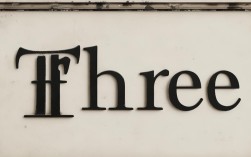In today’s globalized world, knowing how to ask for contact details in English is crucial for networking, business, and personal connections. Whether you're reaching out to a potential client, collaborating with colleagues, or making new friends, using the right phrases ensures clarity and professionalism. Below, we explore common English expressions for requesting contact information, along with practical examples and cultural considerations.

Common Phrases for Requesting Contact Details
Formal Requests (Business & Professional Settings)
When communicating in a professional environment, politeness and clarity are key. Here are some effective ways to ask for contact information:
- "Could you please share your contact details?"
- "Would you mind providing your email address?"
- "May I have your phone number for further communication?"
- "I’d appreciate it if you could send me your business card."
These phrases maintain a respectful tone while ensuring the request is straightforward.
Informal Requests (Casual & Social Situations)
In less formal settings, such as social gatherings or friendly conversations, you can use more relaxed language:
- "What’s the best way to reach you?"
- "Can I get your number to stay in touch?"
- "Do you have an email or social media I can connect with you on?"
- "Let’s exchange contacts!"
These expressions sound natural and friendly, making the interaction feel more personal.
Digital Communication (Emails & Messaging)
When requesting contact information via email or messaging apps, clarity is essential. Here are some useful templates:

- "Please let me know your preferred method of contact."
- "Could you reply with your phone number or email for coordination?"
- "Feel free to share your details so we can stay connected."
Adding a brief reason for the request (e.g., "for project updates" or "to schedule a call") helps the recipient understand why you need their information.
Key Vocabulary for Contact Information
To ensure smooth communication, familiarize yourself with these terms:
- Email address – Used for written communication (e.g., "Can I have your email address?")
- Phone number – For calls or messaging (e.g., "What’s your mobile number?")
- Social media handles – Usernames for platforms like LinkedIn, Instagram, or Twitter (e.g., "Are you on LinkedIn?")
- Mailing address – For physical correspondence (e.g., "Could you provide your mailing address?")
- Business card – A physical or digital card with professional details (e.g., "Do you have a business card?")
Cultural Considerations When Asking for Contact Details
Different cultures have varying norms around sharing personal information. Here are some tips to navigate these differences:
- In Western countries (U.S., UK, Canada): Direct requests are common, but always include "please" and "thank you."
- In Asian cultures (Japan, China, South Korea): Business cards are exchanged formally with both hands as a sign of respect.
- In Middle Eastern countries: Building rapport before asking for contact details is often expected.
Being aware of these nuances helps avoid misunderstandings.
How to Politely Decline Sharing Contact Information
If someone asks for your details and you’re uncomfortable sharing them, you can respond politely:

- "I prefer to keep my contact information private, but thank you for asking."
- "Let’s connect through [professional platform] instead."
- "I’ll reach out to you if needed—thanks for understanding."
This maintains professionalism while setting boundaries.
Practical Examples in Conversations
Scenario 1: Networking Event
Person A: "It was great meeting you! How can I stay in touch?"
Person B: "Sure! Here’s my LinkedIn profile—let’s connect there."
Scenario 2: Business Email
Email: "Dear [Name], Could you kindly share your availability and contact number to discuss further? Best regards, [Your Name]."
Scenario 3: Casual Setting
Person A: "We should hang out sometime—what’s your Instagram?"
Person B: "It’s @username. Let me know when you’re free!"
Final Thoughts
Mastering the art of asking for contact information in English enhances communication in both professional and personal settings. By using polite phrases, understanding cultural differences, and adapting to the situation, you can build stronger connections without awkwardness.

Whether you're networking, collaborating, or simply making new friends, these expressions will help you navigate conversations smoothly. Practice them in real-life interactions to become more confident in your English communication skills.



